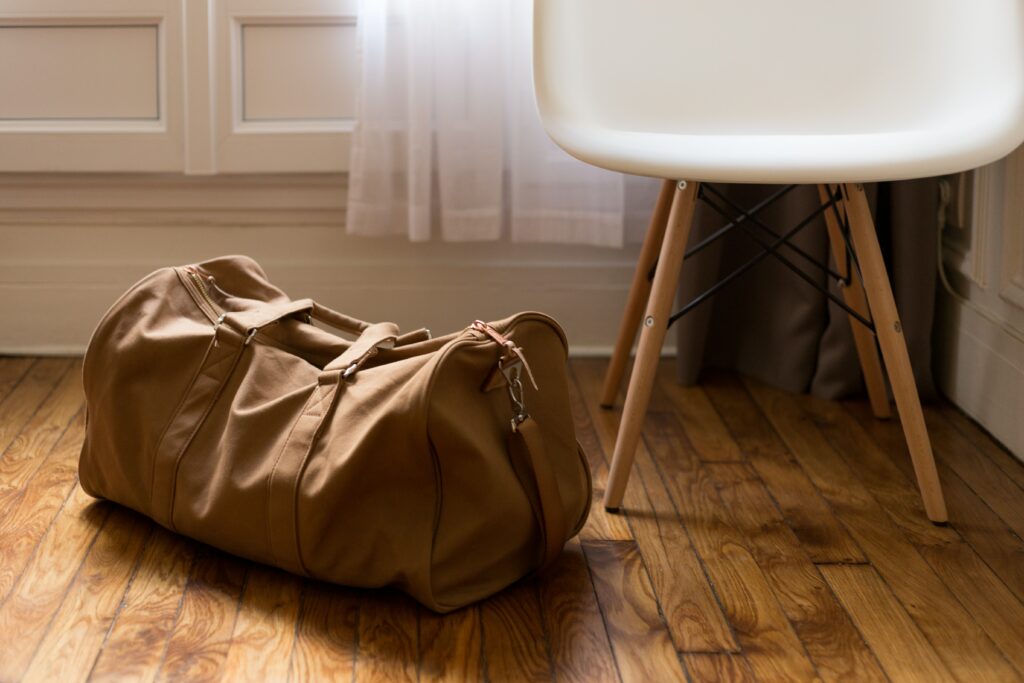Do you have an addiction to alcohol, prescription medications, or illicit drugs? If so, inpatient or outpatient rehab is likely to be a crucial component of your recovery toolkit. Checking yourself into rehab needn’t be intimidating, and the more effectively you prepare for the transition from active addiction to ongoing recovery, the more seamless the process will be.
Before you start to implement changes, do you really need to go to rehab?
Do You Need to Go to Rehab?
It can be difficult to determine when substance use turns into dependence and addiction. If you feel that your use of addictive substances is starting to negatively impact your personal and professional life, you should consider taking immediate action. What you must decide, though, is whether your addiction is so severe that it warrants professional treatment at a drug or alcohol rehab in Orange County.
If you are wondering whether you can check yourself into rehab, there is every chance you have a serious issue with substance abuse. Most people who are not addicted to substances would not be pondering whether or not they require treatment.
Regrettably, there is a significant treatment gap for addiction in the United States. The latest data from SAMHSA (Substance Abuse and Mental Health Services Administration) indicate that in 2020:
- 40 million U.S. adults were addicted to drugs or alcohol.
- 2.5 million U.S. adults engaged with professional drug addiction treatment.
- 2 million U.S. adults engaged with professional alcohol addiction treatment.
Addictions are clinically described as substance use disorders. DSM-5-TR (the latest and updated edition of APA’s Diagnostic and Statistical Manual of Mental Disorders) lists ten different substance use disorders. Each of these has eleven diagnostic criteria, as follows:
- Cravings.
- Inability to moderate or discontinue use.
- Problems in closest relationships.
- Tolerance.
- Withdrawal symptoms.
- Time spent obtaining and using addictive substances.
- Reduced interest in everyday activities and interests.
- Substance use in dangerous situations.
- Neglected personal and professional commitments.
- Lack of control over substance use.
- Continued substance use despite adverse health outcomes.
Addictions are diagnosed according to the number of criteria present in a one-year period.
- Mild addiction: 2 to 3 criteria.
- Moderate addiction: 4 to 5 criteria.
- Severe addiction: 6 criteria or more.
GET HELP NOW
How to Check Yourself into Rehab
Recovery from addiction is not a single event like detoxification or outpatient rehab. Rather, recovery is a lifelong process with rehab often acting as a pathway from active addiction into sustained sobriety.
Follow these steps to to understand how to check into rehab:
1. First, find the right rehab
2. Arrange to cover the costs of addiction treatment
3. Let your friends and family know that you’re heading to rehab
4. Ensure that you tie up loose ends at home before checking yourself into rehab
5. Contact your chosen drug or alcohol rehab and communicate your intent
6. Commit fully to recovery while accepting the situation for what it is
7. Spend time with the positive people in your social network before heading to rehab
8. Embrace positive change
9. Take some time out for yourself before you check into rehab
10. Write a letter to yourself to document this pivotal early stage in your recovery from addiction
11. List all the things that you want to achieve after returning from rehab
12. Make sure you leave all forbidden items at home
13. Take the essentials but only the essentials
14. Check into rehab at the specified time
15. Answer all questions at the initial assessment openly and honestly, and be prepared for a medical exam
If you need help checking into rehab, call our friendly recovery specialists at 866.330.9449.

1) First, find the right rehab
Before you think about checking into rehab, you’ll first need to find a suitable treatment center offering a program that would most benefit you.
There are many different approaches to rehab, and these are broadly cleaved into two delivery methods:
- Inpatient rehab
- Outpatient rehab
With inpatient rehab, you will remain at the treatment facility for 90 days or more. The most common inpatient rehabs are:
- 30-day inpatient rehab
- 60-day inpatient rehab
- 90-day inpatient rehab
If you have a moderate or severe addiction, you might find inpatient rehab, also known as residential rehab, offers the most structured and supportive route to recovery. The same applies to those who have addictions with co-occurring mental health disorders.
Outpatient treatment offers you access to similar services and the same therapies. Unlike residential rehab, you will return home between weekday therapy sessions. If you require more support than a traditional outpatient program provides, consider the following more intensive forms of outpatient therapy:
- IOP (intensive outpatient program)
- PHP (partial hospitalization program)
Those with mild addictions, supportive home backgrounds, or the need for a flexible approach to addiction recovery may find that intensive outpatient treatment delivers positive outcomes.
2) Arrange to cover the costs of addiction treatment
Before committing to a course of addiction treatment, you’ll need to make sure you can finance rehab.
Since the enactment of the ACA (Affordable Care Act) in 2010, major health insurance providers have been obliged to cover at least part of the cost of treatment for drug addiction and alcoholism. Speak with your insurer to establish whether or not you have coverage, and then decide whether or not you wish to engage with rehab covered by health insurance.
If you are paying out of pocket for addiction treatment, you will need to speak with any rehabs on your shortlist to establish how much inpatient or outpatient therapy is likely to cost.
If you are reluctant to engage with treatment because of the perceived cost, ask yourself how much more you will spend by remaining chained by addiction.
3) Let your friends and family know that you’re heading to rehab
When you have decided to go to rehab, you should let your friends and family members know. Many of your closest loved ones may already be aware of this, but you should share your news with others before they hear about your trip to rehab second-hand.
You may, of course, choose not to share your recovery journey with many other people, and this is perfectly okay.
If you need help with watching your home, walking your dog, or childcare, now is the time to make all these arrangements. Soon, you will have a chance to focus fully on your recovery having taken care of all the logistics for checking into rehab.
4) Ensure that you tie up loose ends at home before checking yourself into rehab
Make sure you tie up all loose ends at home. Remember to:
- Inform your landlord, if applicable.
- Alert neighbors to your upcoming absence.
- Make sure that rent, utilities, bills, and loans are kept up to date, as appropriate.
- Make arrangements for childcare if necessary.
- Consider whether anyone needs access to your home to water plants or to retrieve mail.
- Find boarding or care for your pets, unless you are heading to a pet-friendly rehab.
5) Contact your chosen drug or alcohol rehab and communicate your intent
Once you have committed to a specific drug or alcohol rehab, you should contact the treatment center to arrange initiating treatment.
Discuss the expected time and date of arrival and inquire about any rules or forbidden items that will inform your packing for rehab. Ask about payment and insurance as appropriate.
6) Commit fully to recovery while accepting the situation for what it is
Now is the time to strengthen your resolve and commitment to recovery. Ask yourself what you expect to gain by heading to rehab so you can clarify your personal reasons for recovery.
If you are feeling anxious about going to rehab, this is perfectly natural. These feelings should pass. Acknowledge your reluctance and anxiety, but focus fully on your goals during and after rehab to move forwards into recovery.
7) Spend time with the positive people in your social network before heading to rehab
It is worth spending as much time as possible around sober and positive friends who make you feel good.
While going to rehab does not mean you must sever all old friendships, you should certainly reevaluate any relationships grounded on substance abuse. You should also prioritize creating a sober support network. For this reason, it is wise to start spending more time around positive influences before checking yourself into rehab.
8) Embrace positive change
As you prepare yourself to check into rehab, you should be ready to embrace a series of ongoing changes. Reframe your thoughts about recovery and focus on what you hope to gain and the benefit of making positive lifestyle changes rather than viewing recovery as a sacrifice or compromise.
This is not to suggest that rehab will be a straightforward process with no anxiety, depression, or emotional distress. There may even be times when you question your commitment to recovery and come close to relapsing.
While it might not always be easy or pleasant, get ready to implement change for the benefit of you and your loved ones by checking into rehab.
9) Take some time out for yourself before you check into rehab
You will soon be spending most of each day in counseling and therapy sessions at rehab, so take some time now to relax and spend some time alone preparing for what lies ahead.
10) Write a letter to yourself to document this pivotal early stage in your recovery from addiction
By the time you complete your inpatient or outpatient treatment program, you should be in a fresh state of mind as you learn to identify and replace negative, self-defeating thoughts.
Try writing yourself a letter before checking into rehab so you can remind yourself of how far you have come and how much your state of mind has improved.
11) List all the things that you want to achieve after returning from rehab
Instead of pondering a substance-free future with trepidation, make concrete plans for life after rehab.
- Do you want to take a trip with friends or family?
- Are you interested in taking up a new hobby or re-engaging with an old hobby?
- Do you plan to travel abroad?
- Will you be joining a gym or fitness class?
You may have completely different goals for your life after rehab, so have fun and brainstorm the many different ways in which you can thrive rather than survive in sober living.
12) Make sure you leave all forbidden items at home
While there is some variation in what items are forbidden at rehab, there are many common items that will not be allowed. Do not pack any of the following for rehab:
- Weapons
- Razor blades
- Pornography
- Alcohol
- Drugs
- Organic substances
- Revealing clothing
- Excessive makeup
- Clothing with inappropriate slogans
- Musical instruments
- Food
- Beverages
- Vitamins
- Herbal products

13) Take the essentials but only the essentials
Now you know what to leave behind, focus on packing only the core essentials for rehab.
You will need:
- ID
- Health insurance card
- Credit card or debit card
- Small amount of cash
- Prescription medications
- Casual clothing
- Toiletries in line with rehab rules
- Laundry supplies
- Electric razors
For a more complete list, check out our guide to what to bring to rehab.
14) Check into rehab at the specified time
Now it’s time to check yourself into rehab. Arrive on time on the specified date fully prepared to commit to recovery.
Your very first recovery goal should be to arrive and check into rehab, and to remain for the duration of inpatient rehab or for the entire outpatient program.
The first thing you will do at admission is undergo an initial assessment.
15) Answer all questions at the initial assessment honestly, and be prepared for a medical exam
The initial assessment allows your treatment team to advise you whether or not you require a supervised medical detox. They can also recommend inpatient or outpatient rehab, depending on the severity of your addiction, your personal circumstances, and any co-occurring mental health disorders.
Expect to answer questions like the following. Answer them honestly.
- Why are you engaging with addiction treatment now?
- When was the last time you used addictive substances?
- When did you first use addictive substances?
- Do you have a family history of addiction?
- How has using alcohol or drugs impacted your life?
- What is your medical history?
- What is your mental health history?
- What is your employment situation?
- What is your living situation?
- Have you been to rehab before?
You may also have a medical examination to rule out any underlying physical health conditions.
You are now ready to move directly into an inpatient or outpatient treatment program.
Check Yourself into Rehab at Renaissance Recovery Center
When you’re ready to check yourself into rehab, we can help you achieve this without needing to go to residential rehab. At Renaissance Recovery Center in Orange County, we specialize in treating the following conditions in an outpatient setting:
- Alcohol use disorder (alcoholism)
- Substance use disorder (drug addiction)
- Mental health disorders
- Co-occurring disorders (dual diagnosis of addiction and mental health condition)
Addictions and mental health conditions typically respond positively to personalized treatment involving the following interventions:
- Medication-assisted treatment
- Individual counseling
- Group counseling
- Family therapy
- Psychotherapy (CBT or DBT)
- Holistic therapies (experiential adventure therapy)
Every addiction is unique, and everyone requires different levels of support and structure in their outpatient treatment. If you’re ready to check into rehab, choose from programs at the following levels of intensity at Renaissance:
- OP: outpatient program
- IOP: intensive outpatient program
- PHP: partial hospitalization program
Once you complete your treatment program, you may step down to a less intensive form of therapy – from a PHP to an OP, for instance – or you might be ready to transition straight back into everyday life.
Either way, your treatment team will equip you with a comprehensive aftercare plan incorporating relapse prevention and management techniques, access to our alumni program, and ongoing therapy as required.
Take the first step toward checking yourself into rehab by calling admissions at 866.330.9449.




